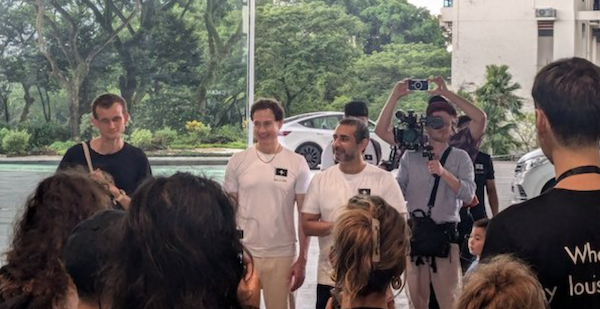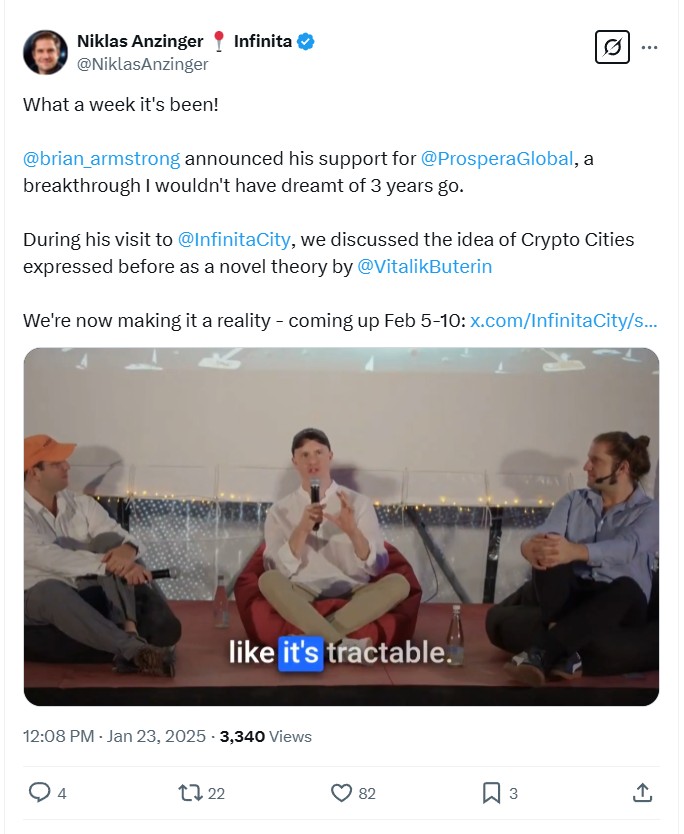From Vitalik Buterin to Balaji Srinivasan, Brian Armstrong and R
  |
From Vitalik Buterin to Balaji Srinivasan, Brian Armstrong and Roger Ver, it seems that no sooner have you become a crypto billionaire than you’re off trying to discover the secret to immortality.
In early 2020, when the pandemic made everyone obsessed with mortality, Buterin wrote: “Can I suggest anti-aging research? Aging is a humanitarian disaster that kills as many people as WW2 every two years… Let’s end it.”
He put his money where his mouth is. Buterin donated 46 trillion SHIB the following year to the Future of Life Institute — worth $665.8 million — and has also donated many millions more to SENS Research Foundation and the Methuselah Foundation.
Bitcoin OG Roger Ver intends to undergo cryogenic preservation when he dies; Tron founder Justin Sun donated $51 million to the Longevity Prize; and Cardano founder Charles Hoskinson invested $100 million in a clinic in Wyoming that plans to launch a trial evaluating a combined stem cell and hyperbaric oxygen chamber therapy.


Hoskinson has volunteered to be the first test subject.
“If my hypothesis is right, we can reverse ageing by over 10 years,” Hoskinson told DL News. “I’m going to be the first guy, the very first guy. I’m getting fat and old and it would be nice to live a little longer and be healthier.”
But what exactly is the link between magic-internet-money enthusiasts and the war on aging? The truth turns out to be deeper and weirder than you might expect.
Longevity is one problem the crypto-rich can’t yet solve
Benji Leibowitz, founder of the longevity research token platform Pump.science, tells Magazine it’s only natural for crypto millionaires to set their sights on one problem their wealth can’t yet buy a solution to.
“A lot of us start off trying to solve the money problem, and then when people solve that and resources are no longer a scarcity, then they realize that time is now their scarce resource, and so they want to try to trade their financial resources for time,” he says.
“Crypto is fairly audacious. And so, I think it takes an audacious phenotype to think that you can beat death… And to just like [think], you can engineer your way out of anything.”
“I think it’s some combination of this Wild West attitude combined with infinite resources and scarce time,” he concludes.


Former Coinbase chief technology officer Balaji Srinivasan certainly resembles that remark and has made longevity an essential strand of his audacious Network School program, with help from Don’t Die multi-millionaire Bryan Johnson.
Johnson told Magazine late last year that if he hadn’t become obsessed with eliminating aging, he would have been all in on crypto. “There’s a reality where my entire life is crypto,” he said, although even he wasn’t sure why the two fields were linked.
“I’m not sure I entirely understand either,” he said. “I mean, the connection seems like they’re parallel tracks that if you’re into one, you’re kind of into the other.
“Bitcoin fundamentally rejects inflation, and I fundamentally reject aging. We basically accept these slow boil deaths, and we both reject the slow boil death.”


Brian Armstrong allocates 2% of Coinbase shares to longevity
Back in 2022, Coinbase CEO Brian Armstrong announced plans to spend 2% of his stake in the listed exchange to fund longevity research. He co-founded New Limit the following year, which aims to radically extend lifespan.
“Longevity feels like it’s tractable,” he said in January this year. “Someone could really make a breakthrough here, or many people, in the next ten years. It’s not like ‘oh we want to do time travel,’ pie in the sky, too far in the future. This is something hard but tractable. And that’s in the sweet spot of something that’s worth working on. You want to be early but right.”
He also made a sizable donation to the Dog Aging Project, which is running clinical trials to see if Rapamycin can slow aging in dogs. Co-director Matt Kaeberlein says he spoke with Armstrong many times in the lead-up to the donation.
“Brian is obviously a brilliant guy but also very thoughtful,” he says. New Limit is “focused on epigenetic reprogramming … so I know it’s something that he’s deeply interested in and has put a significant portion of his own resources towards.”
Kaeberlein is a highly respected longevity researcher who has published more than 200 scientific papers. He’s also the founder of health optimization tech company Optispan and the Healthy Aging and Longevity Research Institute at the University of Washington.


cointelegraph.com
